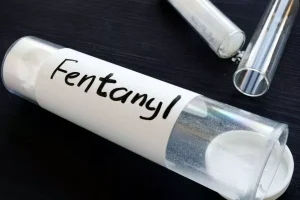7 Types of Drunks: Your Personality & Reaction to Alcohol

Individuals who experience trauma, or who are more prone to depression or anxiety, are more likely to report drinking to cope. Many young people today see drinking as counterproductive to their mental health goals. They’re not afraid of challenging the old “let loose” mentality if it means staying sharp and feeling good. But it’s significant that the people who change the most and are the least fun to be around when drunk are also the most likely to have alcohol-related issues, like blackouts or fights. That suggests “drunk personalities” could be clues to the trajectory and nature of drinking problems.
- Unquestionably, then, alcohol can change how you think, feel, and behave.
- This is because alcohol stimulates the release of neurotransmitters like dopamine and serotonin, which contribute to these feelings.
- Beyond simply drinking to socialize, there are two types of adolescents and young adults with a particular risky combination of personality and drinking motive preference.
- This can make individuals feel more outgoing and willing to engage in conversations and activities they might normally avoid.
The rise of ‘sober curiosity:’ Why Gen Zers are reducing their alcohol consumption
If uncertain about whether a person’s alcohol consumption is an emergency, err on the side of Drug rehabilitation caution. Some people may be at risk of alcohol overdose after just a few drinks, especially if they are young, small, or do not often drink. For most people, a single drink — for example, 1.5 ounces (oz) of hard liquor, 12 oz of beer, or 5 oz of wine — will elevate blood alcohol by 0.06 or 0.07 per drink. The amount of alcohol a person drinks is the biggest predictor of BAC.
Does Alcohol Uncover Your True Self?
If you’re someone who drinks for fun, keep an eye on how much you’re drinking. Enhancement drinkers are more likely to binge drink or lose track of their drinking when with friends, which can lead to harmful consequences like accidents, fights, or unwanted sexual encounters. Unintended injury is the top cause of alcohol-related harm among teens and young adults.

Health Challenges
The availability of alcohol and modeling of alcohol consumption at home (e.g., drinking to relax after work) affect children’s beliefs in the positive effects of drinking. Advertisements are also a significant source of children’s positive alcohol expectancies, since watching adults drinking and having fun promotes the positive effects of alcohol for kids. Metabolism also influences intoxication levels as it affects how quickly the body processes and eliminates alcohol. Individuals with higher metabolic rates may metabolize alcohol more efficiently, leading to a faster elimination of alcohol from the body. As a result, they may experience a lower level of intoxication compared to individuals with slower metabolism. Understanding the different levels of intoxication is important for both individuals who consume alcohol and those around them.
- Before drinking, you may feel too shy to go up and talk with them.
- Female bodies also tend to contain less water to dilute alcohol and produce less of the enzyme dehydrogenase, which helps the liver break down alcohol.
- Personally, everyone can come up with many reasons why he or she is drinking, which makes a scientific understanding of the reasons difficult.
- Many people enjoy drinking in social settings, where the atmosphere can enhance feelings of happiness and reduce social anxiety.
- This serves to lower your inhibitions, leading you to act more impulsively and not really care that much about how others might adversely assess your behavior.
- Their levels of conscientiousness and intellect also decrease little.
- From a motivational perspective, social norms affect the value that individuals place on drug use.
That doesn’t mean people who drink for fun aren’t at risk of developing problems.
Much like unearthing the hidden cat food can was vital to understanding my cat’s behavior, uncovering the deeper motivations behind alcohol use is crucial. We often only see troubled behavior, like the cat getting into the trash at night or the drinkers who continue to drink despite doctors’ warnings, partners’ ultimatums, or loved ones’ pleas. We don’t realize that there is often an earnest desire for joy or relief behind each pour. Critical slowing of body functions occurs, leading to a life-threatening situation. They may feel slightly more relaxed but are still in control of their actions and decisions.

Emotional and Psychological Effects of Being Drunk
The level of impairment can vary depending on the blood alcohol concentration (BAC), which is influenced by factors such as the amount of alcohol consumed and the individual’s tolerance. It’s important to note that even at lower levels of intoxication, alcohol can still impact why do i like being drunk coordination and increase the risk of accidents or injuries. Create a list identifying how you think people feel and behave when they drink alcohol. Please note that the effects of alcohol can vary depending on various factors such as body weight, tolerance, and the rate of alcohol consumption. It is crucial to prioritize responsible drinking and make informed choices to ensure personal safety and the safety of others.

Your tolerance
The answer is the overall benefit of a goal pursuit, to which two factors contribute—the subjective value of goal pursuit and the perceived likelihood of successful goal pursuit (Value x Likelihood). In other words, the strength of people’s commitment to something depends on its value to them and the chance that the value will, in fact, occur. Remember, as much as we’d like to think we know what will happen when we drink, alcohol can affect our brains in surprising ways.
You will not be able to breathe normally, and your gag reflex won’t work correctly. This can be dangerous — even fatal — if you choke on your vomit or become critically injured. A BAC of 0.08 is the legal limit of intoxication in the United States. A person can be arrested if they are found driving with a BAC above this limit. Ria Health offers several FDA-approved medications for alcohol use disorder.
